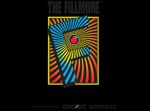Existentially Remixed: Puscifer’s Existential Reckoning Re-Wired

One can enjoy remixed songs without becoming existentially remixed in the process. Sometimes though, one just isn’t as augmented by the experience as the remixer might have intended.
Maynard James Keenan often wanders around the undiscovered and unrealized area, or era (or errata) where Jung and Melchizedek’s theories mingle and produce the theory of an ideal (or flawed) human consciousness derived from an evolution (or mutation) that is the product of the acceptance (or imposition) of 2 extra chromosomes meant to augment (or destroy) the function of the basic 46 human chromosomes. If you are still reading, you didn’t accidentally click the wrong link. This is a review of Puscifer’s latest remix album and not an article on psychological or genetic theory. I just thought it would be fitting to introduce Keenan’s regular artistic state of mind and draw a metaphor between it, Puscifer, his old band TOOL, and one of my favorite TOOL songs (and theories) “Forty-Six and Two.” This is because evolution, mutation, and augmentation (or destruction) often describe what happens to an album of great songs when they are remixed. Puscifer’s latest (and arguably greatest) album of music, Existential Reckoning, has undergone the aforementioned evolution (and simultaneous devolution) that all previous Puscifer albums have undergone, and as you might have surmised by this point, the results are decidedly (re)mixed.
Something that is definitely not mixed, as by way of result, is Keenan’s choice of remixers. All of them are companions of Keenan’s who pal around with him in that aforementioned undiscovered and unrealized area of the human conscious and subconscious and ponder what it would be like if itself were remixed both psychologically and chromosomally, then compose music and lyrics that explore such musings. At the top of the list, name recognition-wise only, are Trent Reznor with Atticus Ross and Phantogram. Less recognizable, but no less talented, is Mat Mitchell (a member of Puscifer himself), Justin Chancellor (bass player for TOOL), and Juliette Commagere (Hello Stranger, Puscifer). Other re-mixers include Troy Van Leeuwen (QOTSA), Alessandro Cortini (NIN), and Carina Round, along with other members of Puscifer, both studio and touring.
The remixed songs off of Existential Reckoning all bear the DNA signature of their respective remixer. Reznor’s haunting piano keys and ghostly metallic white noise backgrounds are unmistakable on his and Ross’ remix of “Apocalyptical.” So much so that the song’s DNA isn’t as much scrambled and reassembled in traditional remix fashion as overwritten with NIN’s particular compositional DNA. It’s more like encountering an old friend in a nightmare where they accidentally got merged with another friend who accidentally tripped and fell into Dr. Seth Brundle’s teleportation machine during transfer and came out some weird amalgamation of both. The being produced is recognizable, but unsettlingly so, neither being as exactly unique and engaging as they are as separate entities. Perhaps, this is the nightmare-inducing goal here though, a creation that splices the DNA of two unique artists to create something that should be more than the sum of its parts. Sadly, it often comes out fatally flawed instead (much like “Brundlefly”).
While the remixes are not nearly as horrific as Jeff Goldbloom’s “Brundlefly,” many are not exactly the chromosomal-enhancing gifts from Alex Grey-like gods one would expect. This isn’t to say that the remixes are uninteresting or downright repulsive. It’s just to say that Puscifer is such an interesting musical trip in and of itself that it belies the appeal of the remix. Reznor is a credited co-writer on at least one Puscifer song and one incredible A Perfect Circle song (“Passive”), and it would be way more interesting to hear more co-writing collaborations between Reznor and Keenan than Reznor remixes of Keenan (and company) written material, for example.
Still, the exposure that each remixer gets on the album is itself a gift to the listener, as many of them might not be known to the listener, and some quick research can lead them to the evolution-inducing experience of encountering interesting new music by some accomplished artists worth a further listen. Phantogram in particular is a band that everyone should check out at some point and Commagere’s solo work is particularly listen-worthy. Maybe I’m just not enough of a fan of guitar-driven industrial-electro rock (of the type that Puscifer produces) that’s stripped of the “guitar.” Maybe I just haven’t sprouted my own two extra musically evolved chromosomes and remain, neanderthal-like, stuck in a guitar-worshiping evolutionally rut. Whatever the case, one can enjoy remixed songs without becoming existentially remixed in the process. Sometimes, one just isn’t as augmented by the experience as the remixer might have intended.




























